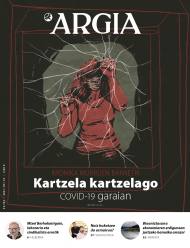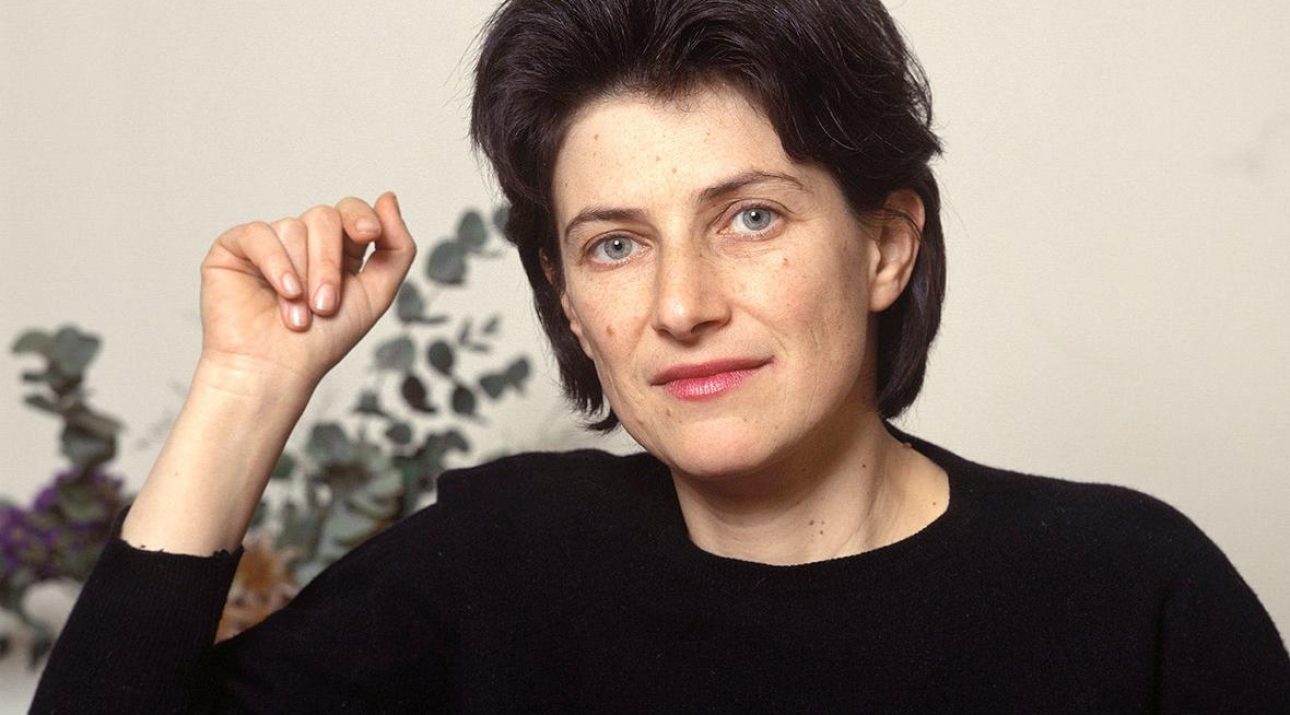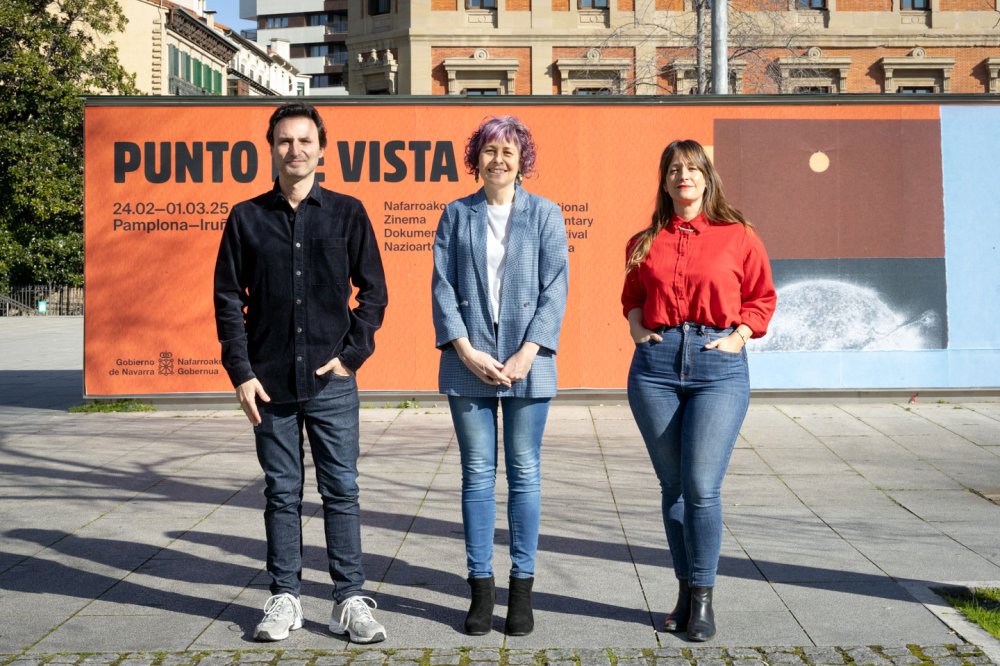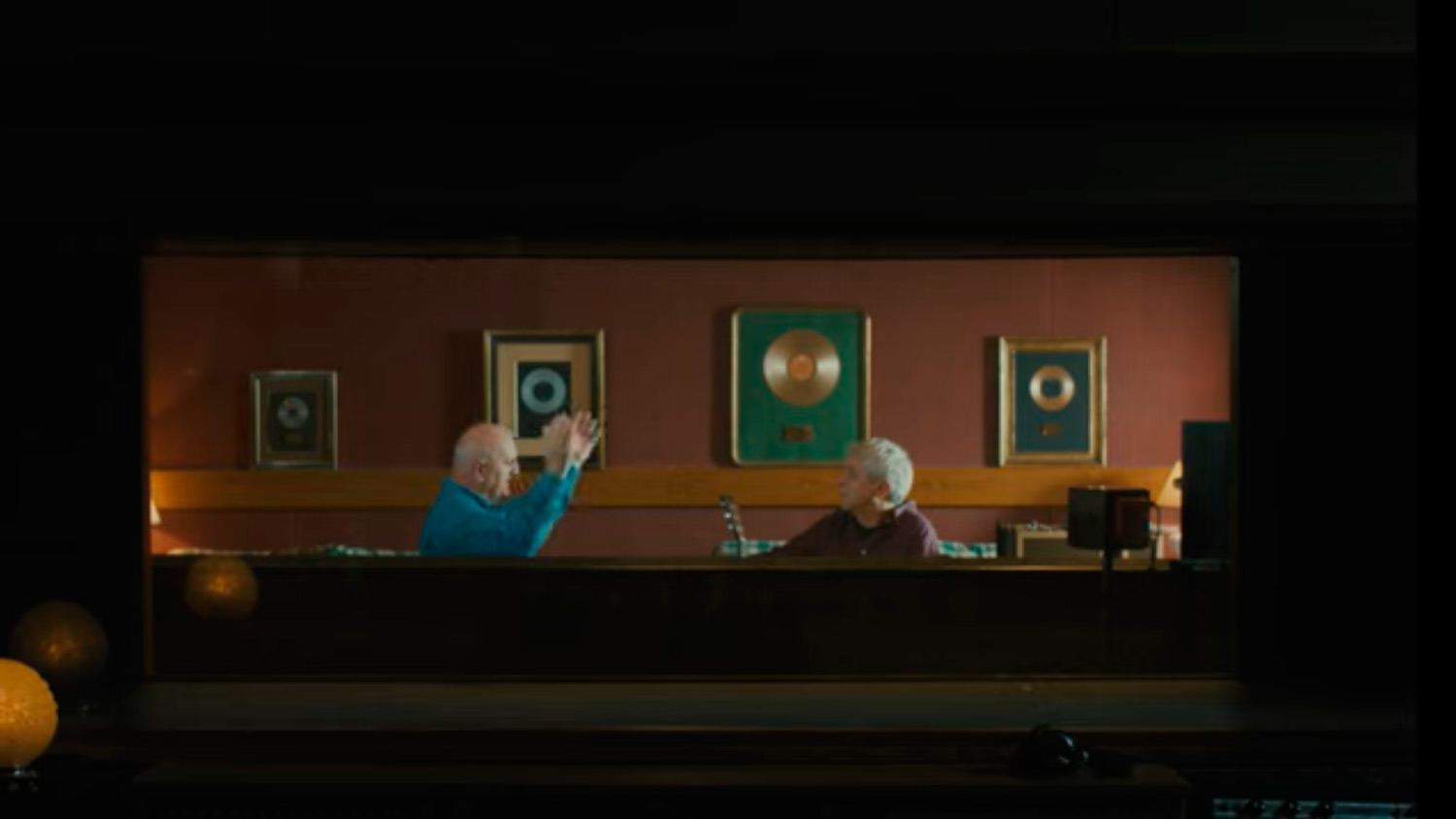To propose global conceptions
- Under this title, the feminist film cycle of Tabakalera began in 2018. It is currently organized in collaboration with Artium and is composed of monthly films and prologues about them. The aim of the initiative is to make known the films of female directors that have been left out of the canon and to propose possible new stories.

This programme is inevitably associated with the question that has been around us lately. In short, what do the films of this cycle have in common? And what directors? Surely I have worked as a woman under the conditions imposed by society. Maybe similar experiences in terms of the limitations to make films. As a result, most have been left out of a single film story. Hence the plural mark of the last word of the title: that which looks at other visions that go through the unique history that is learned in schools. And for that we'd love film, because it has the ability to give global conceptions.
I would not say that there is a single thematic line. It is significant that in the history of film the first fiction film directed by a man refers to the conquest of the moon (Voyage dans la Lune de Meliès), while the first female director of fiction, Alice Guy, directed La Fée aux Choux. The latter performs the adaptation of a French story with a fairy on stage between the az. The difference between the two, that one part of a child story and the other is the story of what was going to be such a big step for humanity, reveals many things, but does not link or separate the issues of men and women forever. Women who want to make films that represent the conquest of the universe, please move forward, send them to us. The movies made from reality itself reveal that same reality, but that doesn't mean that they're films linked to femininity, as if they existed in essence.
The previous reflection brings us to Berta Sichel's question: Does it make sense to talk about gender images? And it doesn't have an easy answer.
The previous reflection brings us to Berta Sichel's question: Does it make sense to talk about gender images? And it doesn't have an easy answer. Sara Mills proposed to set aside female stereotypes in order to avoid the homogenization of women's tasks that this would entail. The latter questioned the use of the same category of “woman”, in the conviction that it would harm the normalization of the natural. With this political decision I sought to assert the diversity of the feminine works so that they were not limited to a specific theme or style. On the other hand, Griselda Pollock pointed out that the male and female work was different, as race, class and sexual tendency influenced personal work. These two attitudes do not have to be opposing; it can be strategic to dispense with the term “female cinema” in order not to perpetuate oppression, although it understands the influence of the working and living conditions themselves.
It cannot be denied that filmmakers make films in a context based on the hegemonic history of art. In it, roles have been stabilized for the benefit of men, financing, exhibiting and rewarding, in general, the work of men. However, women have been regarded as body objects in the permanent updating of Venus in the Renaissance Urbino. In the process of transforming the muses of the great male artists into artists, therefore, the burden on them cannot be secretly passed on. Beyond the risky categorizations “feminine art” or “cinema”, there is a patriarchal society that classifies and interprets its productions. On the other hand, this film cycle, held in Tabakalera and Artium, confirms the diversity and complexity of films directed by women, which cannot be limited to a single theme or treatment.
.jpg)
In 1975, Laura Mulvey published in Screen magazine a revolutionary article on Visual Pleasure and Narrative Cinema, forever changing the feminist theory of cinema. For the first time, he looked at Hollywood movies through psychoanalysis and came to the conclusion that films are for men. Two years later, together with Wollen, he put his film theory into practice with the realization of a Riddles of the Sphinx (Esfingearen enigmak) essay film. Mulvey himself opens the film by speaking directly to the viewer and explaining all the elements of the film. Perhaps in response to this proposal, the projections of the feminist film cycle have been presented by cinema enthusiasts related to this field, emphasizing the intermediation between the public and the film.
They began the cycle with Alice Guy, the pioneering filmmaker mentioned above, with the projection of Madame a des envies (Madame has desires) three or four years ago. The argument seemed classic: a pregnant woman walking with the man, on the contrary, with the intention of satisfying her desires, begins to steal food, alcohol and tobacco, breaking the image of the good mother in thousands of pieces. The 4-minute short is available on Youtube and has not stopped breaking the canon that remains standing.
Works of Maya De and Vera Chytilová were also offered at the beginning of the cycle. The At land of the first (on Earth) is an experimental work carried out on a beach where the director himself lives extraordinary relations and events before the camera. Daisies (Margaritas) from Chytilová surrealistically keeps the stories of two women whose goal is to joke men. They both show, in short, the other side of the good-natured woman that is common. In order to build beyond reality, Born in flames (born in Sugar) by Lizzie Borden or The Watermelon woman (The Angurri Woman), by Cheryl Dunye, explain from the perspective of African American and Flying Women both sci-fi and detective situations. The latter have also been taught within the cycle.
The film has built from the male view a single false image of the woman and the universe. These films, and this cycle, are essential to fight for it.
In the screening of Las Manos, carried out in Tabakalera, five short films with different perspectives and objectives were put in contact. The Hands: the Life and Loves of the Gentler Sex, Franciszka and Stefan Themerson, Oko I Ntilde by Ivonne Rainer Hand Movie, the Linda Leagid movement in my Valanid. The joint projection of the five short films generated a dialogue between different conceptions, on the one hand because reason (hand) was understood in different ways and, on the other, because each decision (red fingernails, one hand, choreographies of many...) created new testimonies and stories.
Mirentxu Loyarte has also selected the work The Basque women of Mirentxu Loyarte in this cycle. It is a good choice of this work, which calls us to look at the local. This film is the only one directed by a woman in the Ikuska collection; under the coordination of Antxon Ezeiza, there were 21 short films with the objective of reflecting the Basque Country of the time in the 70's and 80's. Aware of the presence of women, he proposed that Loyarte participate in the project and directed his work around Basque women. On the contrary, there is no female conception of other films that are part of the series, which refer to song, political situation or language.
The examples given are only a sample of the work carried out throughout the cycle. The eleven topics discussed and the different aesthetic decisions made show the impossibility of homogenizing the work of women. Being conceived within this cycle, all the works are related to feminism or, at least, contribute to feminism. But there are also attempts to build the necessary film to give a new image of the world. The film has built from the male view a single false image of the woman and the universe. These films, and this cycle, are essential to fight for it. Progressively, to get them out of these specific projections and into all spheres, these cycles can be the path.
No other land dokumentalaren zuzendari Hamdan Ballal kolono sionistek jipoitu zuten astelehenean bere herrian, beste hainbat palestinarrekin batera, eta Israelgo militarrek eraman zuten atxilo ondoren. Astarte goizean askatu dute.
Donostiako Tabakaleran, beste urte batez, hitza eta irudia elkar nahasi eta lotu dituzte Zinea eta literatura jardunaldietan. Aurten, Chantal Akerman zinegile belgikarraren obra izan dute aztergai; haren film bana hautatu eta aztertu dute Itxaro Bordak, Karmele Jaiok eta Danele... [+]
35 film aurkeztu dira lehiaketara eta zortzi aukeratu dituzte ikusgai egoteko Euskal Herriko 51 udalerritan. Euskarazko lanak egiten dituzten sortzaileak eta haiek ekoitzitako film laburrak ezagutaraztea da helburua. Taupa mugimenduak antolatzen du ekimena.
Pantailak Euskarazek eta Hizkuntz Eskubideen Behatokiak aurkeztu dituzte datu "kezkagarriak". Euskaraz eskaini diren estreinaldi kopurua ez dela %1,6ra iritsi ondorioztatu dute. Erakunde publikoei eskatu diete "herritar guztien hizkuntza eskubideak" zinemetan ere... [+]
Geroz eta ekoizpen gehiagok baliatzen dituzte teknologia berriak, izan plano orokor eta jendetsuak figurante bidez egitea aurrezteko, izan efektu bereziak are azkarrago egiteko. Azken urtean, dena den, Euskal Herriko zine-aretoak gehien bete dituztenetako bi pelikulek adimen... [+]
Otsailaren 24tik eta martxoaren 1era bitartean, astebetez 60 lan proiektatuko dituzte Punto de Vista zinema dokumentalaren jaialdian. Hamar film luze eta zazpi labur lehiatuko dira Sail Ofizialean; tartean mundu mailako lau estreinaldi eta Maddi Barber eta Marina Lameiro... [+]
A conference for architects has just been held in Madrid to discuss the crisis of the professional architect. They have distinguished the traditional and contemporary way of being an architect. What is traditional? From the epic architect who appears in The Brutalist, where... [+]
Itoiz, udako sesioak filma estreinatu dute zinema aretoetan. Juan Carlos Perez taldekidearen hitz eta doinuak biltzen ditu Larraitz Zuazo, Zuri Goikoetxea eta Ainhoa Andrakaren filmak. Haiekin mintzatu gara Metropoli Foralean.






















